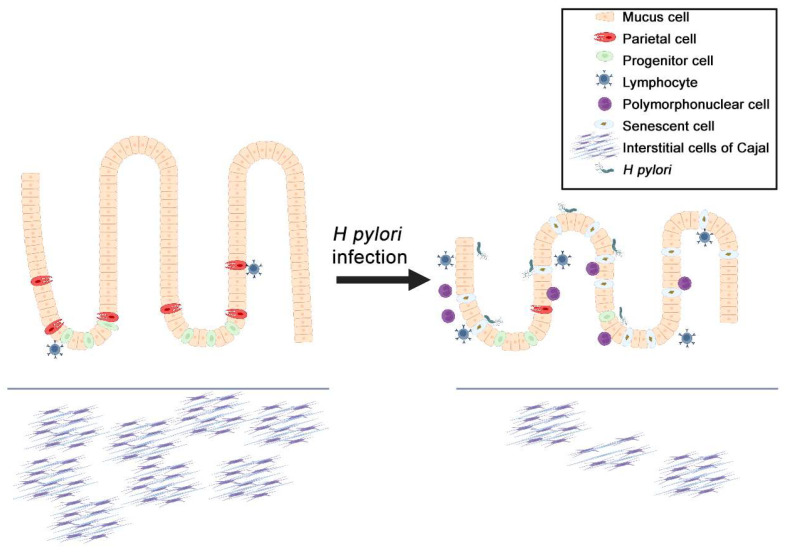Figure 2.
The effect of Helicobacter pylori infection and senescent cells on the mucosa of the stomach. H. pylori infection leads to oxidative stress on gastric mucosa and the creation of more senescent cells due to DNA damage. This, in turn, leads to the over-secretion of senescence-associated secretory phenotype (SASP) proteins, which creates a highly inflammatory microenvironment in the gastrointestinal tract. Although SASP is usually tumor suppressive due to an immune response, the combination of gastritis and inflammatory factors is tumor promotive, thereby increasing the chances of gastric oncogenesis.

